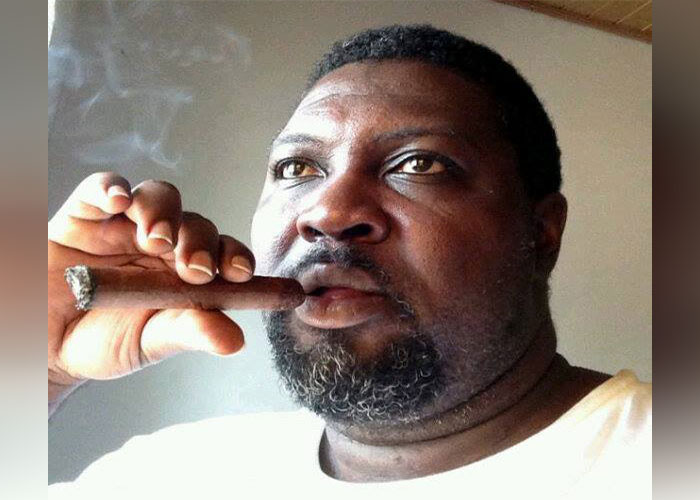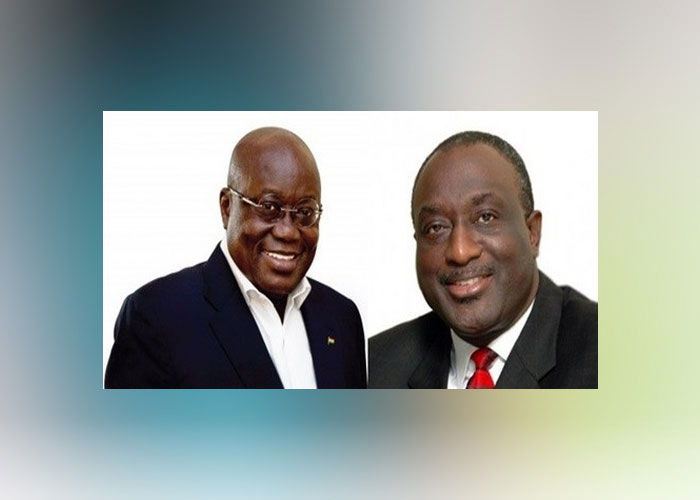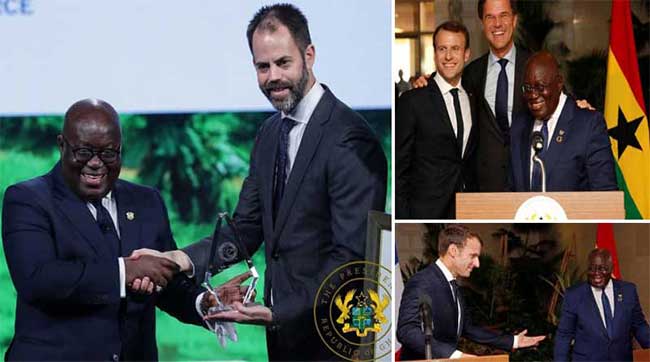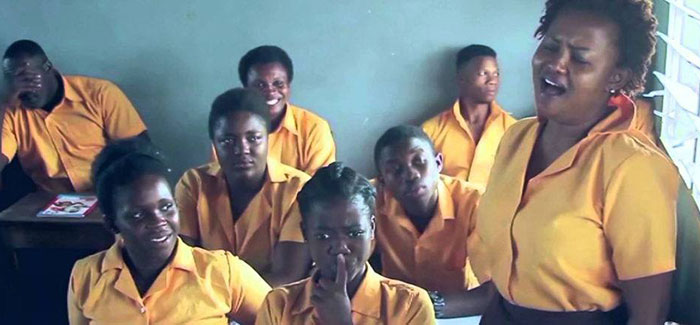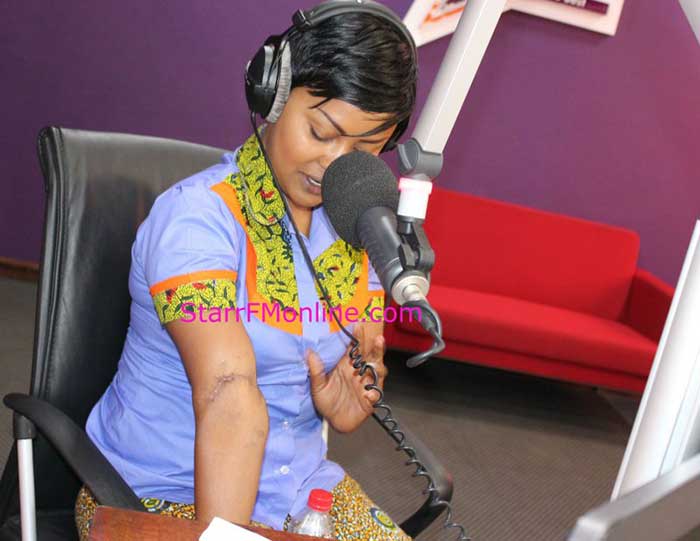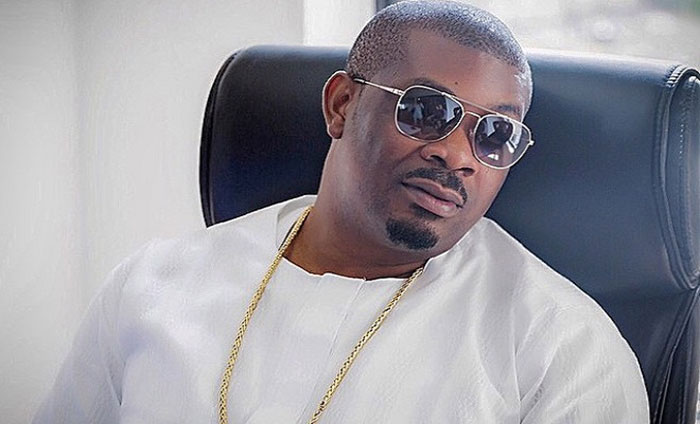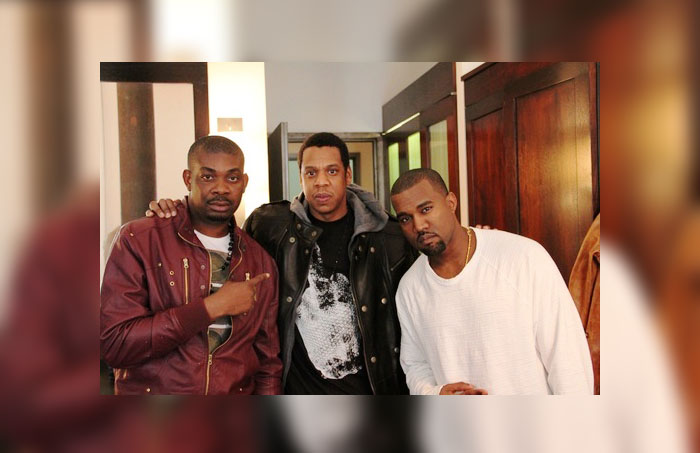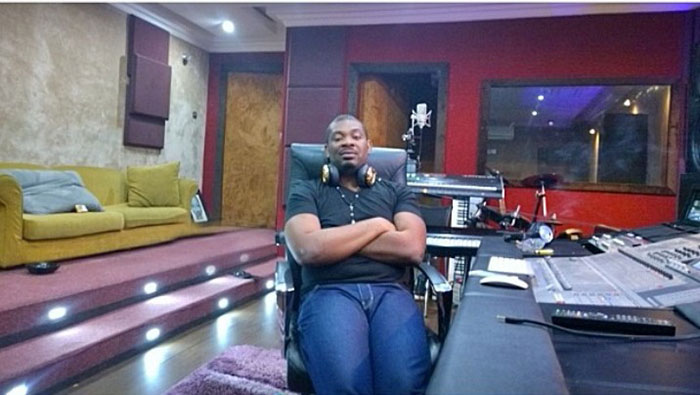Business & Finance
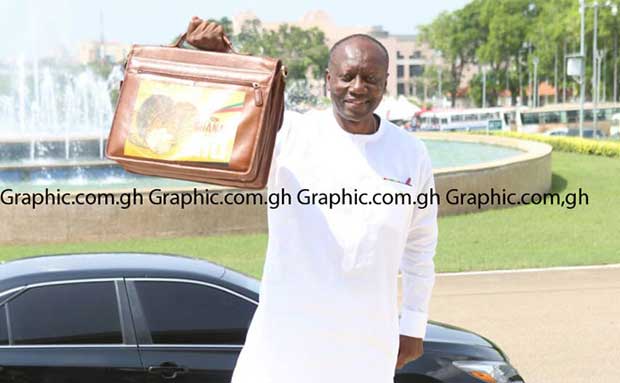
- Super User
- Category: Business & Finance
- Thursday, 02 March 2017 16:31
Read the full 2017 Budget Statement in text as presented by Finance Minister, Ken Ofori-Atta....
We present to you the full 2017 Budget Statement and Economic Policy as presented by Finance Minister of Ghana, Ken Ofori-Atta, before the Parliament of the Republic of Ghana on Thursday, March 2, 2017.
Read on....
SECTION ONE: INTRODUCTION
MACROECONOMIC TARGETS FOR 2017 AND THE MEDIUM TERM
SECTORAL PERFORMANCE AND OUTLOOK
SECTION SIX: POLICY INITIATIVES
IMPROVING THE BUSINESS ENVIRONMENT
EXPENDITURE MANAGEMENT AND COMMITMENT CONTROL
IMPROVING DEBT MANAGEMENT
INFRASTRUCTURE FOR POVERTY ERADICATION PROGRAMME
FREE PUBLIC SENIOR HIGH SCHOOL
OTHER INITIATIVES
MILLENNIUM CHALLENGE CORPORATION
EDUCATION FUND
INTEGRATED ALLUMINIUM INDUSTRY
FIGHTING CORRUPTION
JOB CREATION
SECTION SEVEN: CONCLUSION
SECTION ONE: INTRODUCTION
1. Rt. Hon. Speaker, Honourable Members of Parliament, on the authority of President Nana Addo Dankwa Akufo-Addo, I beg to move that this Honourable House approves the Financial Policy of the Government of Ghana for the year ending 31st December 2017.
2. On the authority of the President, and in accordance with Article 179 of the 1992 Constitution, permit me to present to this august House, the maiden Budget of the President of the Republic of Ghana.
3. This presentation is an abridged version of the 2017 Budget Statement and I would like to request the Hansard Department to capture the entire Budget Statement and Economic policy
4. I also submit before this august House the following reports:
♦The 2016 Annual Report on the Petroleum Funds, in accordance with Section 48 of the Petroleum Revenue Management Act, 2011 (Act 815), as amended;
♦The 2016 Annual Debt Report, in accordance with Section 72 of the Public Financial Management Act, 2016 (Act 921); and
♦The 2016 Energy Sector Levies Report, in accordance with Section 6 of the Energy Sector Levies Act, 2015 (Act 899).
5. Mr. Speaker, let me first thank you and the house for approving my nomination as Finance Minister. My profound gratitude to both sides of the isle. Thanks for the dry run of 3 hours 45 minutes; I pray that I will be let off sooner this time. Mr Speaker, I also stand here humbled by the President‟s courage and confidence to elevate me to this very weighty and high office of Finance Minister of the Republic of Ghana, a nation with a manifest destiny for greatness, a nation with very high expectations for President Akufo-Addo‟s government, a nation that is 60 years old, remains a diamond in the rough and therefore needs more than a shine.
6. Mr. Speaker, it is at this providential point in our history that I have been given this grave but exciting responsibility to participate in sending Ghana beyond aid and to realise our birth right as the Black Star of Africa. I, Mr. Speaker, accept this role with all the solemnity and reverence that it deserves.
7. Mr. Speaker, I would like to assure this house as I also did with the Finance Committee that I will work with members with utmost candour and respect. You are first and foremost the legislative, the representatives of our people and I have been privileged to witness the sacrifices you have gone through to be here. Ayekoo.
Secondly, Mr. Speaker, I am standing in the rather large size shoes of a legacy of family members such as Dr. JB Danquah, Mr. William Ofori-Atta, Honourable Amoako-Atta, Dr. Jones Ofori-Atta (my father), President Nana Addo Dankwa Akufo-Addo and Honourable Atta Akyea. I have, Mr. Speaker, been brought up to respect this house and I will also like to honour my forbears. Finally Mr. Speaker, let me freely admit, that this battle ahead is indeed the Lord‟s and I humbly confess before this august house and the nation, of my inability to accomplish this enormous task without the help and the leading of the Almighty; through Jesus Christ we can resolve these challenges and establish a righteous and just Society for all.
8. Mr. Speaker, nine (9) days ago, the President presented the State of the Nation Address to this august House. His address, in addition to presenting the state of the economy, also broadly outlined the vision and policy direction of his Government. A vision of hope, of jobs and wealth creation, and of a robust economy that supports a thriving private sector. With this Budget, I present to you the policies, strategies and actions we will undertake to deliver the President‟s vision.
9. Mr. Speaker, let us acknowledge that we have inherited a challenged economy in which we are all stakeholders in:
♦ considerable debt overhang and rising interest payments caused by excessive borrowing;
♦ expenditure overruns and accumulated arrears caused by excessive sole sourcing, lax fiscal policies and weak commitment controls,
♦ revenue underperformance caused by leakages, loopholes and tax exemptions;
♦ slowdown in economic growth caused by energy challenges and a lack of an enabling environment for the private sector;
♦ limited capital investment, among others, due to rigidities from earmarking of revenues that severely limit the fiscal space and undermines the prioritisation of government policies; and.
♦ urgent need to collaborate with our work force and build a shared partnership to enhance training and improve productivity
10. The country‟s debt stock has reached a level of about 73 percent of GDP at end-December 2016, which is in excess of the debt sustainability threshold of 70 percent. This has resulted in high debt service costs with interest payments alone taking up nearly 42 percent of tax revenue. This, together with Compensation of Employees and Statutory Payments, is more than total domestic revenue, leaving no fiscal space for growth enhancing policies/programmes/expenditures.
11. Total expenditures at end-December 2016 stood at 30.3 percent of GDP against a target of 26.4 percent of GDP, with an outstanding stock of arrears of nearly GH¢7 billion. This is at variance with the Performance Criteria on the non-accumulation of arrears for the 2016 fiscal year under the IMF-supported Extended Credit Facility (ECF) Programme.
12. Mr. Speaker, the large fiscal slippages resulted in a fiscal deficit of 8.7 percent of GDP on cash basis and 10.3 percent on commitment basis. This is a sharp deviation from the IMF program fiscal target of 5.3 percent of GDP. We intend to reverse this trend and restore fiscal discipline.
13. Mr. Speaker, the rate of economic growth has slowed down in recent times, with 2016 growth estimated at 3.6 percent, the lowest in over two decades. Of particular concern is the erratic performance of the Agriculture Sector and the continuing energy challenges which have negatively affected the industrial sector. The effect of this is a struggling private sector and rising unemployment.
14. Mr. Speaker, while inflation and interest rates have recently been on the decline, we still have to fix the underlying macroeconomic fundamentals to ensure that this trend is sustainable.
15. Mr. Speaker, the economic challenges we face require deliberate but urgent, well thought out strategic steps and the backing and total support of the Ghanaian people. I am confident that we have the human resource, especially in this House and in our Diaspora Community, the experience, and most importantly the resounding mandate of the people to guide and inspire us.
16. This budget presents a clear roadmap on how we will move this economy from its current state into a full-fledged middle income economy – a Ghana beyond Aid.
17. Mr. Speaker, our goal is to build the most business-friendly and people-centred economy in Africa, which will translate into job creation and prosperity for all Ghanaians. We will strike the right balance between fiscal consolidation and growth, by making credible policy choices that will create the fiscal space to implement growth enhancing initiatives. Mr. Speaker, we intend to build a partnership with labour that will result in a social contract to mark an era of peace in which we will mutually enhance the productivity of our labour force.
18. This commitment however, is hampered by five constraints which we need to overcome:
♦low revenue collection;
♦ expenditure overruns and corruption;
♦ high wage bill;
♦ rigidity of fiscal structure caused by heavy earmarking of tax revenue; and
♦ high debt service payments.
19. This budget presents a proposal to address these issues permanently and I hope I can secure the support of this august House in that regard.
20. Revenue administration remains a challenge. To boost revenue streams, we will strengthen tax administration, reduce tax exemptions, plug revenue loopholes and leakages and combat tax evasion especially at our ports. We will broaden the tax base whilst reducing and abolishing some taxes and levies. The National Identification Scheme, a priority project of this administration, which we intend to re-launch this year, will support our efforts to rope in the economically active but undocumented citizens and the informal sector of the economy thereby broadening the tax base and accelerating financial inclusion.
21. Mr. Speaker, we will adhere to and maintain good economic governance principles of fiscal discipline, accountability and transparency. To reiterate what the President said, we will protect the public purse by guaranteeing value for money in all public transactions, and exercising prudence and discipline in our fiscal management to deliver on the aspirations of the Ghanaian people. Inefficiencies and waste in government spending will not be tolerated and there will be strict enforcement of all relevant laws and regulations, especially the new Public Financial Management Act, 2016 (Act 921).
22. Government will pursue an effective debt management strategy to ensure debt sustainability. We will also adopt global standards of risk and treasury management to ensure accountability in the use of state resources. In addition, we will work to reduce the amount of government borrowing and the resulting crowding out of the private sector. Mr. Speaker, as an example, In the 2016 budget statement, the entire allocation for
the Ministries of Roads and Highways, Trade and Industry, Food and Agriculture, Water Resources, Works and Housing, Youth and Sports and Ministry of Transport amounted to a total of GHC2.2 billion. Interest payments in 2016 (GHC10.8 billion) would be nearly 5 times what was allocated to the six key ministries combined. This is how pernicious our debt stranglehold is.
23. Mr. Speaker, the Budget will set the pace for job creation and accelerated growth by empowering the private sector. To accomplish this, we will shift the focus of economic management from taxation to production. This will reduce the cost of doing business and create a conducive climate for investment and job creation. In this regard, a number of taxes that impede growth will be reviewed, and if necessary, abolished. Government will reverse the recent low growth trend by boosting agriculture and industrial productivity.
24. Mr. Speaker, the 2017 Budget will set in motion the following key policy priorities and flagship projects:
♦establishment of the Infrastructure for Poverty Eradication Project (IPEP). Under this project, every constituency will be allocated the cedi equivalent of US$1 million to combat poverty and improve the lives of rural dwellers and deprived communities;
♦ implementation of the “One District One Factory” programme;
♦ establishment of the Zongo Development Fund to support the provision of critical infrastructure and services;
♦ roll-out of the National Identification Scheme to facilitate the efficient delivery of public and private services and help formalise the economy;
♦ roll-out free SHS to ensure equal opportunities for all and enhancement of human capital for the country;
♦ roll-out of a national digital addressing system to provide unique addresses for all properties in Ghana; and
♦ restoration of teachers and nurses training allowances.
25. Mr. Speaker, despite significantly missing the 2016 the set targets, I want to assure my fellow Ghanaians, investors and external stakeholders that we are committed to continue with the Extended Credit Facility (ECF) Programme with the IMF. We will, however, review some of the targets and structural reform benchmarks to accommodate our priorities of tax reliefs and other positive measures to boost the private sector.
26. Mr. Speaker, Government will implement measures that will unleash the creative abilities of Ghanaians, and facilitate increased economic activity which will lead to the improvement in people‟s lives.
27. Mr. Speaker, there are exciting times ahead and there is every good reason to be optimistic that our country is ready to work again. Our government looks forward to a partnership of progress with our honourable colleagues across the aisle.
28. Mr. Speaker we must as a nation come together to confront our reality. The President did mention nine days ago that he was in a hurry... Mr. Speaker, we must all be in a hurry, we must trigger a national sense of urgency to deal with our deficit. It‟s continual presence curtails our capacity to leverage our many opportunities and resources that we have as a nation. Let me stress, Mr. Speaker, we cannot borrow our way out of these challenges. This will be tantamount to creating and sharing poverty, which only leads to a loss of our fiscal sovereignty; so like the President, we must all be in a hurry to grow our way into Prosperity. This budget, Mr. Speaker, seeks to do this.
29. Mr. Speaker, my presentation today will follow this outline:
♦ I will present a short brief on how the Global economy performed in 2016, the medium-term outlook and the expected impact on the Ghanaian economy;
♦ This will be followed by the Macroeconomic Performance for 2016 against the target sets;
♦ I will then present the President‟s Macroeconomic Targets for 2017 and the Medium-Term Targets;
♦ In addition, I will briefly talk about some key sector deliverables for 2017;
♦ And then provide you with the key policy initiatives for 2017; and
♦ I will finally conclude with highlights of the key messages in the Budget.
GLOBAL ECONOMIC PERFORMANCE AND OUTLOOK
Global Output
30. Mr. Speaker, the global economy is expected to witness some improvement in growth in 2017 and the medium term after a lackluster performance in 2016. The January 2017 Update of the IMF‟s World Economic Outlook (WEO) projects a global growth of 3.1 percent in 2016. This is expected to improve marginally to 3.4 percent in 2017 and further to 3.6 in 2018.
31. For emerging markets and developing economies growth is expected to remain unchanged at 4.1 percent in 2016, and is projected to recover to 4.5 percent in 2017 and further to 4.8 percent according to the WEO.
32. The downside risks to the global outlook, according to WEO, include, increased restrictions on global trade and migration and its negative impact on productivity. In addition, high corporate debt, declining profitability, weak bank balances, and thin policy buffers in emerging market economies may lead to capital flow reversals and depreciation of the local currency.
Commodity Prices
33. Mr. Speaker, oil prices have picked up in recent weeks resulting mainly from an agreement among major producing countries to reduce supply. Crude oil prices are expected to average $55 per barrel in 2017, about 28 percent increase over the 2016 levels.
34. Gold prices are expected to decline from an average of US$1,249 per fine ounce in 2016 to US$1,219 in 2017 due largely to an expected strengthening of the US dollar.
According to the Commodity Markets Outlook by the World Bank, Cocoa price is projected to average about US$2,940 per tonne in 2017 up from US$2,850 in 2016.
Implementation of ECOWAS Common External Tariff (CET)
35. Mr. Speaker, Ghana joined nine other member state to implement the ECOWAS Common External Tariff (CET) effective 1st February, 2016. The ECOWAS CET is considered a major platform for the establishment of Customs Union that will facilitate free trade and advance greater economic integration within the region. The tariff is expected to help address problems such as cross-border smuggling and dumping in the sub-region. Government is currently monitoring and evaluating the impact of the new regime on various sectors of the economy.
Implications of Global Developments for Ghana’s Economy
36. Mr. Speaker, we address the risk of commodity price volatility, Government will work towards diversifying the economy. We will add significant value to our exports and
support local manufacturing of imported goods, which can be produced locally in partnership with the private sector.
MACROECONOMIC PERFORMANCE FOR 2016 Growth
37. Mr. Speaker, growth has remained subdued over the period. The 2016 GDP, based on the provisional outturn for the first three quarters of the year, is estimated at 3.6 percent, with the non-oil real GDP estimated at 4.6 percent, same as target. At the sectoral level, the Industry Sector, specifically, mining and quarrying underperformed due to a contraction in upstream petroleum output, which constitutes the bulk of the Mining and Quarrying Subsector. All the subsectors in the Agriculture Sector, however, recorded positive growth rates. The Services Sector continues to dominate the sectors with a share of 54.3 percent in 2016.
Inflation
38. Mr. Speaker, inflation, which remained elevated for most part of 2016, began to slow-down towards the end of the year. Inflation began the year at 19.0 percent, peaked at 19.2 percent in March and ended the year at 15.4 percent.
Monetary and Credit Developments
39. Mr. Speaker, the key monetary aggregates and credit to the private sector recorded slower growth in 2016, in line with the tight monetary policy stance. The broad money supply (M2+), at the end of December 2016, recorded an annual growth of 22.0 percent compared with 26.1 percent in the same period of 2015. This was mainly driven by a moderate growth of 19.5 percent in Net Domestic Assets (NDA) and a Net Foreign Assets (NFA) growth of 29.8 percent in December 2016.
40. Growth in total outstanding credit to the public and private institutions moderated further in December 2016, a reflection of a higher incidence of non-performing loans and the tight monetary policy stance. The annual growth in total credit slowed to 17.6 percent at the end of December 2016 from 24.9 percent recorded in 2015.
Click on the next arrow button to continue....







